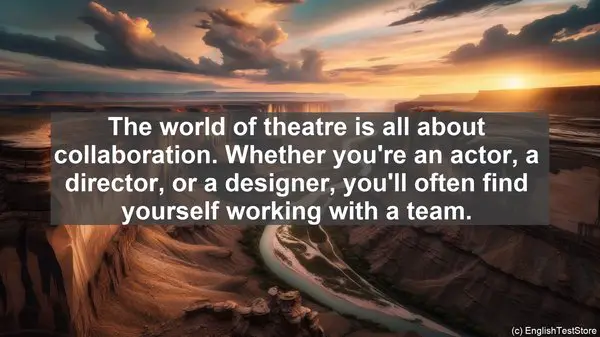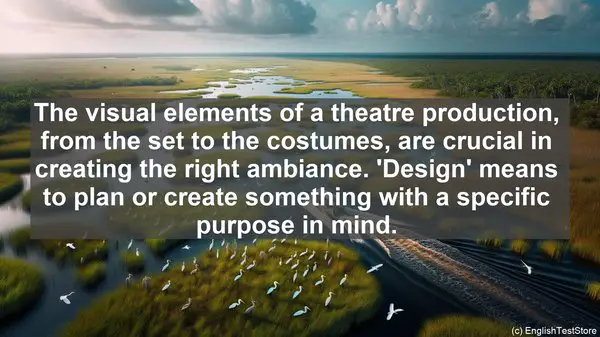Introduction
Welcome to today’s lesson. If you’re passionate about performance arts and theatre production, then you’re in the right place. Today, I’ll be sharing with you the top 10 English verbs that are crucial for conversations in this field. These verbs will not only help you express your ideas clearly but also make you sound more professional. So, without further ado, let’s dive in!

1. Collaborate
The world of theatre is all about collaboration. Whether you’re an actor, a director, or a designer, you’ll often find yourself working with a team. ‘Collaborate’ means to work together towards a common goal. It’s important to remember that in theatre, everyone’s contribution is valuable, and by collaborating effectively, you can create magic on stage.
2. Rehearse
Rehearsals are the heart and soul of any theatre production. ‘Rehearse’ means to practice or go over a performance repeatedly. It’s during rehearsals that actors polish their lines, perfect their movements, and understand the nuances of their characters. The more you rehearse, the more confident you’ll be on stage.
3. Direct
The director is like the captain of a ship in a theatre production. ‘Direct’ means to guide or oversee the artistic aspects of a performance. A director not only helps actors understand their roles but also makes decisions about the set, costumes, and overall vision of the production. It’s a role that requires both creativity and leadership.
4. Stage
The stage is where the magic happens. ‘Stage’ can refer to both the physical platform where the performance takes place and the act of presenting something. As a verb, ‘stage’ means to organize or put on a performance. From setting up the props to coordinating the actors, staging a production involves meticulous planning and execution.
5. Perform
At the heart of it all, theatre is about performance. ‘Perform’ means to present or execute a piece of art in front of an audience. Whether it’s a monologue, a dance routine, or a musical number, a good performance captivates the audience and evokes emotions. It’s the culmination of all the hard work put in during rehearsals.
6. Design
The visual elements of a theatre production, from the set to the costumes, are crucial in creating the right ambiance. ‘Design’ means to plan or create something with a specific purpose in mind. In theatre, designers play a vital role in bringing the director’s vision to life. They consider factors like aesthetics, functionality, and the overall theme of the production.
7. Construct
Building the set is like constructing a mini-world for the performance. ‘Construct’ means to build or assemble something. In theatre, constructing the set involves not just the physical structure but also the props and other elements. It’s a hands-on process that requires both technical skills and attention to detail.
8. Adapt
The world of theatre is ever-evolving, and sometimes, changes need to be made on the fly. ‘Adapt’ means to adjust or modify something to suit a new situation. Whether it’s a last-minute script change or a sudden technical issue, being able to adapt quickly is a valuable skill in the theatre industry.
9. Coordinate
A theatre production involves multiple moving parts, and it’s essential to ensure everything comes together seamlessly. ‘Coordinate’ means to organize or arrange things in a harmonious way. From scheduling rehearsals to managing the backstage during a performance, coordination is key to a successful production.
10. Evaluate
Once a performance is over, the learning doesn’t stop. ‘Evaluate’ means to assess or analyze something. In theatre, evaluating a production involves looking at various aspects, from the actors’ performances to the audience’s response. It’s through evaluation that improvements can be identified and future productions can be even better.

